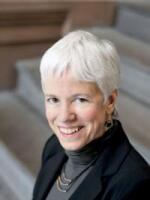One day after President Obama touted the hydro fracking of natural gas as a “bridge fuel”, Governor Cuomo’s environmental commissioner says it’s “extremely unlikely” that permits for drilling wells will be issued in the next year.
Cuomo’s Department of Environmental Conservation Commissioner Joe Martens testified at a legislative budget hearing. The state has had a de facto moratorium on hydro fracking for nearly six years.
Martens told lawmakers there were “no plans” to begin drilling in the new fiscal year, which runs through March 31, 2015. Afterward, he clarified his comments.
“The question applied to budget,” Martens said. “There are no funds in the budget that have anything to do with high volume, hydraulic fracturing. Logically, the consequence of that is we have no plans to issue permits.”
If New York were to begin drilling, then money would be needed in the new state budget to pay for additional staff to issue permits. Governor Cuomo, in his spending plan proposal, is not asking for that.
Even before permits could be issued, the DEC would have to complete a supplemental environmental impact statement, known as the SGEIS. That review has been held up since September of 2012, when Commissioner Martens announced that Cuomo’s health commissioner, Dr. Nirav Shah, would conduct a health study.
Martens says he’s still waiting, for the results of that review.
“Until Dr. Shah finishes his review, we won’t be proceeding,” Martens said.
Martens says there is “no timetable” for Shah to finish.
A small group of anti-fracking protesters attended the hearing. They began chanting, “not one well”, but were quickly hushed.
John Armstrong, with Frack Action, says he’s relieved to hear that fracking in New York will continue to be delayed.
“We find that to be excellent news,” said Armstrong, who says every day that there’s not fracking in the state is a day when New Yorker’s “aren’t getting sick”.
There has been no public information about what Dr. Shah is studying in the nearly year and a half of the study. Martens did not answer questions about whether he was satisfied with the transparency of the process.
Armstrong, with Frack Action, says he’d like to know more about Shah’s research, and wishes the health commissioner would expand it into a comprehensive health study. He says he’d like to see more public participation and the inclusions of more scientists, researchers and doctors to “make sure due diligence” is done.
Dr. Shah is scheduled to testify before the joint legislative fiscal committees in February, where he is likely to face more questions.







